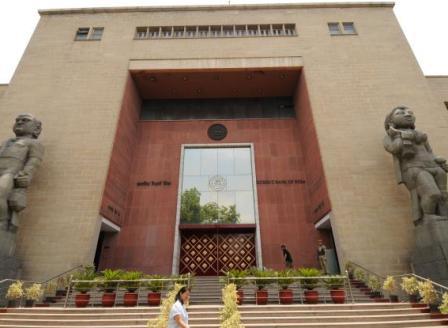Cobrapost editor Aniruddha Bahal criticises RBI move, says it is not harsh enough
Two months after the sting operation by a web portal exposed violation of banking norms by several banks, including several public sector institutions, the reserve bank of India (RBI) has swung into action by slapping a total penalty of around Rs 43 crore on 22 banks.
Of the 22 banks penalised, 12 are public sector banks, including the likes of State Bank of India, Punjab National Bank, Andhra Bank, Bank of Baroda, Canara Bank and Oriental Bank of Commerce. The other 10 are private sector banks and foreign banks.
But Aniruddha Bahal, editor of cobrapost.com, the website that carried out the sting operation (Red Spider-II) in May this year, criticised the RBI’s “mellow” stance and imposing meagre penalties. Stressing that the central bank’s action is not “as harsh as it should have been”, Bahal told Governance Now, “RBI should show more spine and levy fines that hurt and are meaningful.”
(Please read Aniruddha Bahal’s interviews to Governance Now after the sting went public here and here)
The apex bank imposed a total penalty of Rs 43.505 crore, of which PSU banks would have to shell out Rs 32.003 crore. The penalties varied between Rs 50 lakh and Rs 3 crore, depending on the number and seriousness of violations made by the banks. The list put out by the apex bank reveals that the PSU banks top the chart here, too.
Indian Overseas Bank has been slapped with the maximum penalty of Rs 3.002 crore, followed by Canara Bank (Rs 3.001 crore), while State Bank of India, Bank of Baroda, Bank of India and Central Bank have been penalised Rs 3 crore each.
Among private and foreign banks, the maximum penalty has been imposed on Federal Bank (Rs 3 crore), followed by Jammu and Kashmir Bank (Rs 2.501 crore), Lakshmi Vilas Bank (Rs 2.5 crore), Dhanlaxmi Bank (Rs 2 crore) and Kotak Mahindra (Rs 1.501 crore), besides a few others.
According to the RBI, the banks have been penalised for failing to comply with know your customer (KYC)/anti-money laundering norms, guidelines on monitoring transactions in customer accounts and instructions on import of gold on consignment basis.
The apex bank has, however, clarified that its investigation did not bring to light conclusive evidence to prove instances of money laundering, contrary to cobrapost’s claims in its sting op (read here). “The investigation did not reveal any prima facie evidence of money laundering. However, any conclusive inference in this regard can be drawn only by an end to end investigation of the transactions by tax and enforcement agencies,” it said in a statement.
Criticising the petty penalty amounts, Aniruddha Bahal said: “There are global precedents of fines that act as a deterrent. RBI soft peddles on taking strong action as banks whisper that if you are too tough we will fail! RBI should show more spine and levy fines that hurt and are meaningful. The RBI comes out looking like a protector rather than a regulator of banks.”
The portal had carried out sting operations in two parts this year. The first came into the public domain in March, claiming to expose leading private sector banks ICICI, HDFC and Axis for purportedly flouting various banking regulations. The second part of the expose, released in May, revealed that flouting of banking norms was rampant across the entire banking sector and was not just restricted to the private banks.
Following these exposes, the apex bank had ordered investigations into the functioning of all banks. While ICICI, HDFC and Axis banks were slapped with a total penalty of Rs 10.5 crore in June, the other today 22 other banks, both public and private, were penalised today.
In the case of seven other banks, including one PSU bank, where serious lapses of processes were not discovered, the apex bank has only issued cautionary letters.

